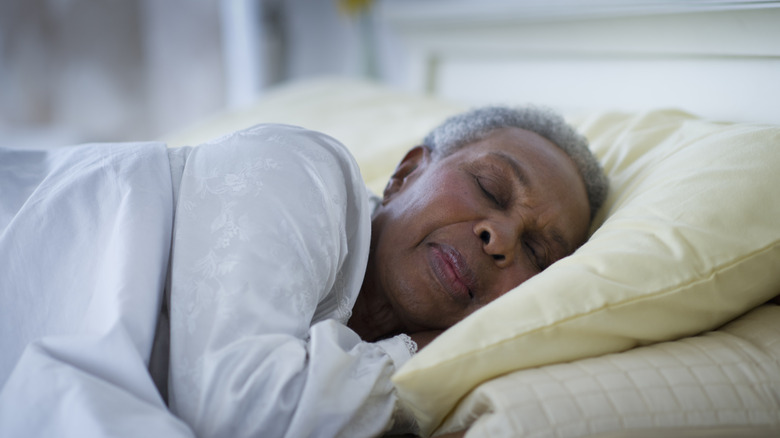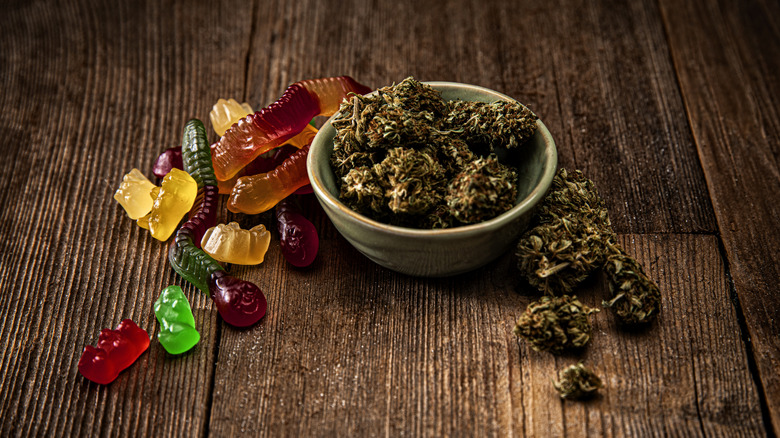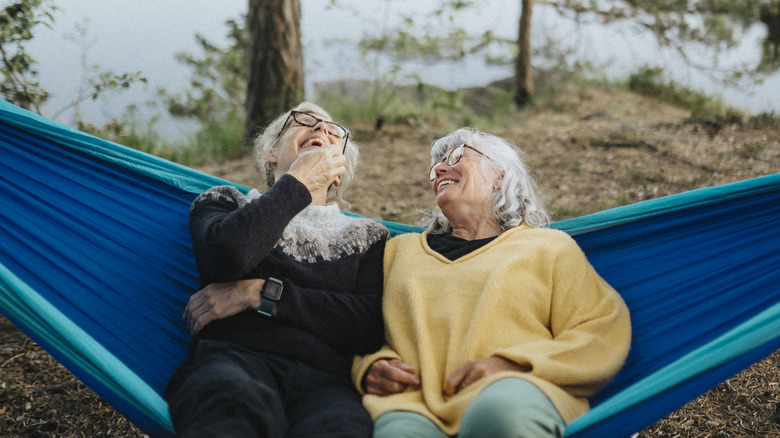When Adults Over 50 Smoke Weed, Here's What Happens To Their Sleep
Marijuana isn't just for the younger crowd anymore. With legalization making it increasingly mainstream across the U.S., more older adults are turning to cannabis. The National Poll on Healthy Aging found that 12% of people over 50 had used a cannabis product in the past month. Also, more than half of these users had talked about their marijuana use with a doctor. While relaxation was the most common reason for use, the second most popular was better sleep.
As you age, it can be harder to get a good night's sleep. The Sleep Foundation says you can lose as much as 27 minutes of sleep each night for every decade past middle age. A little weed may help you sleep longer or shorter depending on your age, according to a 2023 study in Sleep Health. Daily cannabis users aged 45 to 64 were more likely to sleep longer compared to abstainers. Adults 65 and older who used cannabis daily tended to sleep less than those who didn't use the drug.
How cannabis affects your sleep
Although cannabis isn't a sleep aid, Sleep Doctor says many people will use it to relax so they can sleep better. Tetrahydrocannabinol (THC) is the psychoactive component in cannabis, and a little THC can help you sleep. However, too much THC in your system can have a negative effect on your sleep, making you feel anxious. Cannabidiol (CBD) is often used to relieve pain and anxiety that can interfere with sleep, but it won't give you the same sleep-inducing effect as THC (and CBD can affect your medication). You may not have heard about cannabinol (CBN), but it's an oxidized form of THC that has strong sedative effects.
The number of hours of sleep you get is important, but cannabis can affect your sleep quality. A 2024 study in the Journal of Clinical Sleep Medicine looked at the sleep quality when people used cannabis within three hours of bedtime. People using cannabis fell asleep initially, but the study found that they spent more time awake after falling asleep. Cannabis also increased the amount of light sleep, which is the least restorative stage of sleep. Using cannabis more than 20 times a month caused more sleep disruptions and delayed REM sleep. REM sleep is important for improving memory and protecting against dementia (per Harvard Medical School).
Cannabis may affect older adults differently
As you age, you may notice that you respond differently to certain medications. You may need less of a drug than you did when you were younger because your physiology changes, according to the American Medical Association. Medications and substances like cannabis may also stay in your system for longer. Older adults also tend to take medications for several health conditions, and researchers are still looking into how cannabis may interact with these medications.
(Read what happens to your memory if you smoke marijuana every day.)
Smoking cannabis can put your lungs at risk, and THC can raise your heart rate and blood pressure. This can put older adults more at risk for a heart attack or stroke. Edible cannabis products take longer to exert their effects, making it easier to overdose. A 2024 article in JAMA Internal Medicine found that ER visits for cannabis poisoning among adults over 65 tripled after Canada legalized recreational marijuana. AARP suggests talking to your doctor first about the potential risks and side effects of using cannabis for sleep.



